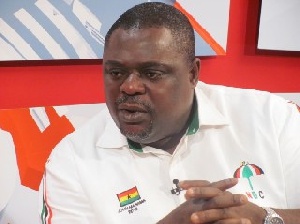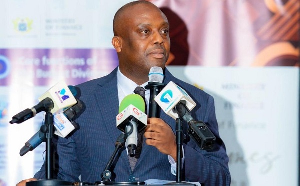A Deputy General Secretary of the ruling National Democratic Congress (NDC) Koku Anyidoho has challenged the moderator of the Presby Church Professor Emmanuel Martey to help solve the energy crisis that has hit the country, if he is in the position to do so.
"Prof. Martey should use his celestial decree to solve Ghana’s energy crisis if he thinks he can be of help to the nation” the former Presidential spokesperson stated on Accra-based Peace FM Monday.
Prof Martey has said he could fix Ghana’s current energy crisis [dumsor] in three months if he was the President of Ghana.
“Listen, Ghana is not a big country to fix this problem. [In] four months you can solve it; at most [in] six months…
“If I were in charge, within three months I will solve the problem,” the plain-talking Chairman of the Christian Council of Ghana said on Sunday when he preached to the Akyem Old Tafo Grace Church in the Eastern region.
But Koku says the utterances of reverend Martey makes him sound more of a politician than a priest.
“This business where Professor Martey is trying to do politics behind the pulpit is unacceptable”.
Ghana is currently shedding between 400 and 700 Megawatts of power during off-peak and peak periods, respectively.
The crisis has come about as a result of poor water levels in the three hydro-electric power stations; lack of gas flow from the West Africa Gas Pipeline in Nigeria to thermal plants in Ghana for production; as well as the breakdown of some plants.
The crisis is taking a toll on Industry, businesses and domestic consumers. Power Minister Dr Kwabena Donkor has promised to resign if he fails to resolve the crisis by the end of December this year.
The Government is taking some short term measures to rectify the crisis. Among the actions being taken is the importation of some emergency plants: two 450-Megawatt capacity barges (225 Megawatt each) from Karpower at a cost of $250 million; 250-Megawatt generating units from Dubai which are being brought into the country; in addition to a 300-Megawatt emergency plant by General Electric.
General News of Tuesday, 10 March 2015
Source: starrfmonline.com













